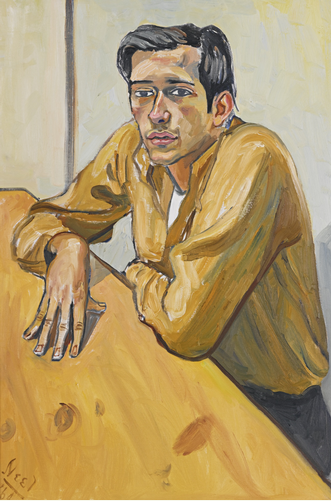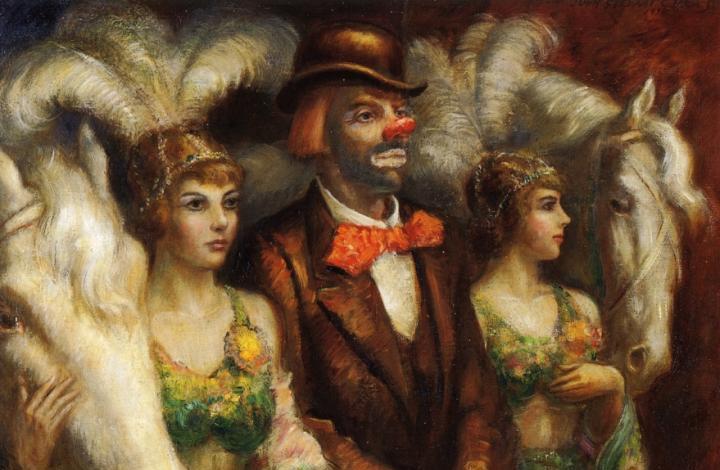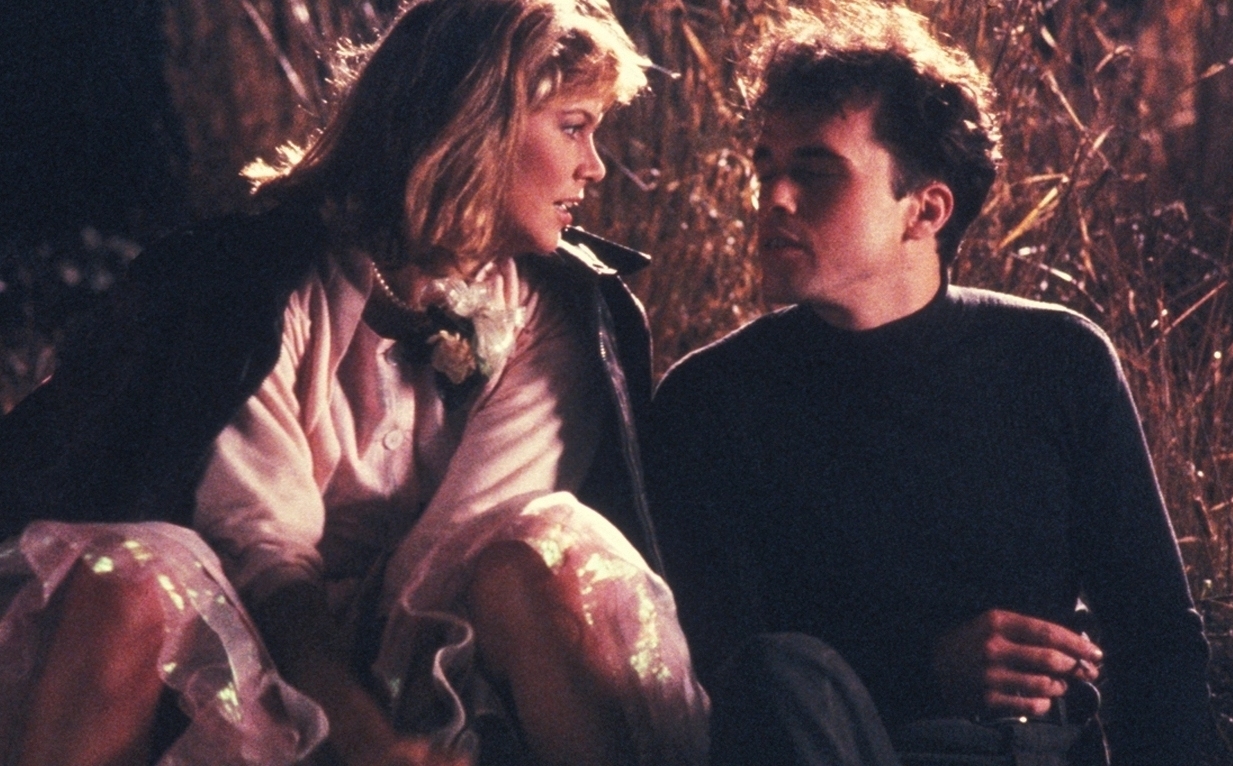It is around this time – the second week in June – that the Irish begin arriving for the season. One can see them along the promenade, wandering 12 people deep, as if in a scrum. The females have fair skin, and the males wear clashing shirts and socks. The Irish are reliable, and they are eager for hard work. The Doughertys hire the Irish en masse. The Doughertys hire the Irish to staff their kiosks, their boardwalk games, and an ice cream parlor, which is located on 24th Street, along a northwest corner of the walk. The girls who work that parlor (Grandma Edie’s) have names like Mairead and Sinead and Fiona and Cliona. Sinead, who hails from County Derry, has taken to teasing me about my dialect. When I tease her back, she purses her lips before giving me a once-over.
“What are you like?” Sinead will say.
My girlfriend, Talia, is managing a french-fry joint which is located at Poplar and the promenade. Our schedules are such that Talia accompanies me to work in the morning, and she accompanies me on my return-walk home at the end of every night. The two of us share the same meal breaks. We share the same shower schedules. We share the same snooze alarms and the same days off. We share so much that by the end of June I have taken to working late, and by myself. I have taken to clocking out, and then heading to the bar. I have taken to spending my dinner breaks behind a cast-metal table along the back of Grandma Edie’s. The dinner hours are slow. I get to communicate with Sinead, one-on-one.
The season has reached full-tilt now, and the Doughertys throw a company party a few days after the 4th of July. This is an intimate affair that takes place inside of Grandma Edie’s. I arrive with Talia, who has one drink before she departs. Ninety minutes later I am sitting with my back against the outside of the building.
“What are y’up to?” Sinead asks. She has taken a seat just to my right.
“I was waiting for you,” I say. This is not a joke, and it is not a lie.
“Hmm,” Sinead says. She is squeezing a lock of hair between crossed fingers.
“Five-ten, blonde hair, tan skin,” I say. “You sure you’re from Northern Ireland?”
“Sometimes I wonder,” Sinead says, and she watches as several strands cascade her side.
“C’mon,” I say. I begin hobbling to my feet. “N’grab your cup.”
“Where are we headed?” Sinead says.
“We’re going for a walk.”
It is 3 AM, and the entire promenade runs empty. I lead Sinead past Surfside Pier, relating the story of how I once got fired. I lead Sinead across the jagged crook that separates North Wildwood from Wildwood. I lead her past the boot-heeled plates, the strewn and pancaked cartons. I lead her down and right along a ramp that empties out beside a vacant lot. Beneath the light, I turn and kiss Sinead. Sinead kisses me back, albeit for a moment. After that, she swivels her head, as if to demur.
“No, no,” Sinead whispers. “No, this is not right.”
“What?” I say.
“What? This,” Sinead says. “This is not right.”
“What are you talkin’ about?” I say.
“You’re seeing somebody,” Sinead says. “And I’m seeing somebody at home, as well.”
“I’m breaking up with Talia,” I say.
“Because of me?” Sinead says.
“No,” I say. “Because it makes sense.”
“Oh, I’m sure,” Sinead says. The kelly in her eyes is gleaming.
“You’ll see,” I say. The two of start back.
***
I broach the subject a few nights after the party, while Talia and I are sitting in our kitchen. “This isn’t working,” I say. “I think we need to break up.” Talia appears shell-shocked, particularly when I go on to suggest – without insisting – that it might make sense for her to move out. There is no reason for Talia to pay me any of her back rent, I explain. If she needs to shuttle her belongings, I will lend her full use of my car. I remain gracious, despite burying the dagger. Talia’s eyes have drawn narrow. She is questioning the why.
I excuse myself. I wash my face and I head to the bar. When I return Talia is asleep, but she has written me a letter. It is positioned on the table, next to a candle in the dark. Dear Bob, Talia’s message begins, I believe that we can do better. The letter’s tone is optimistic. It is written in the first-person plural throughout. Upon finishing, I reread it. I experience guilt over not experiencing doubt.
Talia is gone when I awake the following morning. I shower and I put on my clothes. I hurry to the boardwalk, where I locate Talia around the back of the fry joint. She is folding cardboard boxes.
“Hey, there,” I say. Talia is wearing a pair of imitation Diors. “I just wanted to apologize for walking out on you last night.”
“It’s OK,” Talia exhales. “I suppose that we both needed a little bit of time to cool off.”
“We needed a what?”
“I said that I suppose we both needed a little bit of time to cool off. Anyway, we can talk about it over dinner. I assume that you’ll be going on your break around 6?”
“Hold on,” I say. “I feel like I need to be clear about something. I mean, I’m sorry if I upset you, and I really appreciated the letter. But I stand by what I said about us breaking things off.”
Talia stares at me before making a stack out of the boxes.
“Please leave,” Talia says. She enters the fry joint, pulling the back door until it’s closed.
***
Talia quits the fry joint. She packs what little she has, and she enlists her brother to give her a ride back to their parents’ house in Philadelphia. There is no mourning period. I ask Sinead to take a midnight stroll with me a dozen hours after Talia has departed. Sinead agrees, and we set out north along the beach via Wild Wheels Pier. I ask Sinead about her family; Sinead asks me about my goals. I tell Sinead that I would like to become a writer someday, and Sinead tells me that she would like to become a New York City cop. The night is clear, and the breeze, it feels perfect. We circle back upon reaching the lifeguard station at 15th Street. An hour later, we say goodnight a half-a-block from Sinead’s front door.
The two of us schedule a day off together. I invite Sinead to my apartment, where I have cooked breaded chicken and mashed potatoes, creamed corn, and fresh rolls. I stock the fridge. I present Sinead with a flower. After dinner, the two of us sit in the living room, where the sun is streaking low and through the blinds. I take Sinead’s hand, and I lean in to kiss her. Sinead kisses me back. Everything about her seems warm.
It is nightfall, and Sinead meanders back to her apartment. The two of us make plans to reconvene at the Hill 16 around 1. Sinead arrives at the bar with several of her roommates, while I, in turn, arrive with several of my friends who are already drunk. The club is loud, and the dancefloor keeps thumping. I lead Sinead out through a side door. We take a taxi to West 24th.
Once at my place, Sinead and I retire to my bedroom. The kitchen phone rings. I fumble to grab it in the dark.
“Hello,” I say (a botched attempt at cancelling the ringer).
“Did you just get in?” Talia wonders. Her voice strikes me as tart.
“Umm, yeah,” I say. Sinead turns on a light.
“Are you alone?” Talia asks.
“Look, I am not going to get int–”
“I know that you were with her,” Talia continues. “The Irish girl. Is she there, at the apartment?”
“I told you, I am not–”
“Is she there?”
I do not answer.
“Don’t you let that bitch sleep in our bed,” Talia commands me.
“This is not the time,” I say. “I’ll see if I can give you a call tomorrow.”
“If you hang up,” Talia raises, “then this’ll be the last time that we talk.”
“G’night,” I say. I place one thumb over the receiver. The mood is ruined. I pull the cord
out of the wall.
***
Sinead and I keep each other company – a short walk home, some small talk on a park bench after the end of a long night. True to her word, Talia is no longer calling me. And Sinead, for her part, has put her relationship on a temporary shelf. As pertains to matters physical, Sinead and I both veer toward the conservative. The two of us kiss, but only as a courting ritual. The two of us have slept in the same bed, despite not having sex. When I am with Sinead, I feel rejuvenated. Sinead represents the girl gone on a journey. She represents the stranger who has swept in like a swell.
Our day-to-day is unremarkable, and it proceeds in a similar fashion until the last week of July. It is at this point Sinead informs me that she is needed back in Ireland. The details are scant, but Sinead alludes to the possibility that her father has taken sick. Sinead quits her job, and she books herself upon a one-way flight that is departing out of Newark. I drive Sinead to the airport. I keep struggling to strike a balance between what is – and isn’t – appropriate to be said.
Outside the flight gate, Sinead begins to cry. I exhale deeply. I clutch my leg.
“The two of us will talk … and I will write you letters … I am coming to the UK … and you can visit me in Florida.”
And then the flight boards. And then Sinead has vanished. And then I am in Wildwood, where the twilight streaks a barstool, which is situated next to a jukebox that just keeps playing without end.
Day 1,591
(Moving On is a regular feature on IFB.)
©Copyright Bob Hill
Member, American Authors Guild





